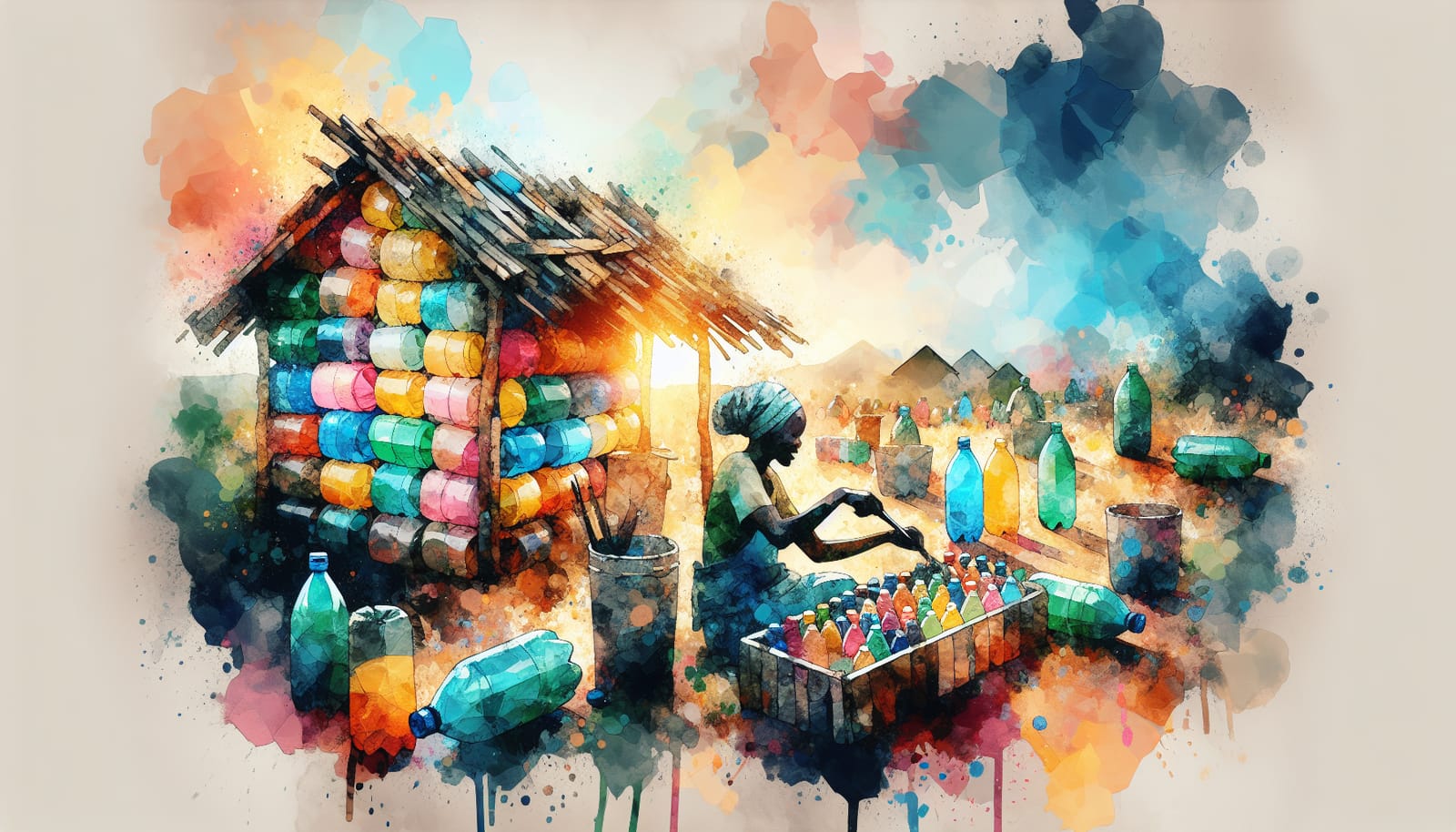In Uganda, an inspiring wave of innovation is taking place as young people aged 15 to 30 are finding ways to overcome challenges in employment and education. With a vision for a brighter future, these dedicated individuals are tackling the issue of plastic waste, which, unfortunately, is a significant concern in the country. The absence of a proper waste disposal system for plastic bottles has led to the clogging of pipes and flooding in urban areas, affecting the beautiful landscapes of Uganda.
Despite these hurdles, there is a growing awareness of the need for sustainable housing solutions, particularly as the population increases and infrastructure demands rise. Many rural Ugandans work with modest incomes, making it essential to create opportunities that enhance both health and economic stability through innovative approaches.
A remarkable initiative called Pendeza Shelters, founded by David Monday in 2022, is at the forefront of this positive change. This startup constructs homes and shelters using eco-bricks and other sustainable materials that are not only resilient against the elements but also provide a pathway to uplift the most marginalized members of society.
"Pendeza," which means "beautiful" in Swahili, underscores the commitment to building durable, attractive, and safe housing solutions, especially for those affected by disasters. The organization's mission extends to refugees, individuals who have faced the devastation of floods, and women seeking social support.
In addition to constructing homes, Pendeza Shelters focuses on empowering communities through training in waste management and construction skills, fostering a sense of well-being and resilience. This holistic approach addresses immediate housing needs while encouraging sustainable practices.
A shining example of collaboration is the partnership between Pendeza Shelters and the Gejja Women Foundation. This nonprofit organization is dedicated to uplifting marginalized women and girls through business development, education, and training in vital health areas. The Safe Girl Initiative, for instance, trains young women to produce reusable sanitary pads, providing an eco-friendly and affordable hygiene option while empowering women with employment opportunities.
The Safe Girl Initiative has successfully expanded since its inception in 2018, growing from two women producing 100 kits a month to a vibrant team of 24 women creating up to 50,000 kits annually. These efforts not only improve menstrual hygiene for girls in need but also foster a sense of community empowerment.
Pendeza Shelters also supports the construction of the Gejja Women Foundation Empowerment Room, where women gather to learn and produce sanitary products. The women actively participate in collecting and recycling plastic bottles, turning waste into valuable resources for their community.
"Through our initiatives, we have provided direct jobs to over 230 women and youths, allowing them to support their families and change perceptions about plastic waste," Monday expressed, emphasizing the positive impact of this program.
The ripple effect of Pendeza Shelters' work is profound. As individuals learn to manage waste responsibly, they share their knowledge with others, and some even embark on their own entrepreneurial journeys, creating beautiful products from upcycled materials.
Community members, including local masons, are also involved in building these sustainable structures, ensuring that knowledge is passed down and shared widely. This peer-to-peer exchange fosters a culture of sustainability, with Pendeza Shelters reaching out to new communities to monitor and evaluate progress.
So far, Pendeza Shelters has been instrumental in developing 40 remarkable plastic bottle structures across Sub-Saharan Africa. With the ability to produce 20,000 eco-bricks each month, the organization ensures that construction projects are completed efficiently, typically within three months.
For organizations like the Gejja Women Foundation, having a safe and sustainable environment to grow and thrive is invaluable. As one Facebook post beautifully articulated, "A project like this wouldn't have been possible without the dedication and hard work of Pendeza Shelters and the women."
The Gejja community is now looking ahead to building a new cottage, expanding their impactful work. By transforming plastic bottles into eco-bricks, they are not only addressing waste but also cultivating a cleaner, healthier environment.
This heartening story of resilience and innovation showcases how communities in Uganda are coming together to create a brighter future, turning challenges into opportunities for growth and empowerment.


